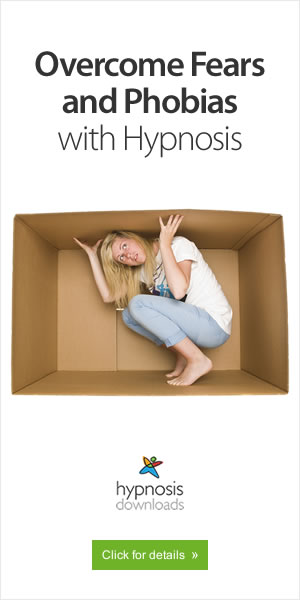Mysophobia Germophobia – Beat Your Fear Of Germs
 Mysophobia Or Germophobia – Fear Of Germs: The term mysophobia, derived from Greek words musos for uncleanness and phobos for fear, is an irrational fear of uncleanliness, contamination and germs. It was coined in 1879 by Dr. William Alexander Hammond. Germophobia is defines as a pathological fear of germs, bacteria, microbes, contamination and infection.
Mysophobia Or Germophobia – Fear Of Germs: The term mysophobia, derived from Greek words musos for uncleanness and phobos for fear, is an irrational fear of uncleanliness, contamination and germs. It was coined in 1879 by Dr. William Alexander Hammond. Germophobia is defines as a pathological fear of germs, bacteria, microbes, contamination and infection.
Psychologists mainly use the term Germophobia (sometimes spelled germaphobia) to describe the fear of germs, microbes, bacteria, infection, or contamination. There are also other names for this pathological state, such as mysophobia (fear of uncleanliness), bacillophobia, verminophobia, or bacteriophobia. Other terms like rupophobia, rhypophobia, molysomophobia, or molysmophobia also relate to the abnormal fear of filth and dirt.
All people have fears, but phobias are more advanced compared to standard fears. You cannot control them, and they can be unreasonable and excessive. Germophobia causes anxiety and distress that are out of proportion to the damage that parasites or contamination may cause. A person with this phobia might do many strange things to avoid germs.
Mysophobia or Germophobia, the fear of germs can be cured – there are treatment programs that really do work.
#1 Self-Help Treatment Program
The Overcome Fear Of Germs program is a self hypnosis treatment specifically for those who suffer from Mysophobia or Germophobia . Follow it in your own time, it’s completely discrete and represents amazing value for money too.
Highly recommended – Find Out More >
Mysophobia – Fear Of Germs: Introduction
Like many other fears, germophobia often origins from the period between childhood and young adulthood. Several primary factors can contribute to the development of this phobia. They include:
- Environmental factors. Beliefs and ideas about hygiene or cleanliness that you were exposed to as a child may determine the fear development.
- Family history. Many phobias have a genetic origin. If your family member suffered from anxiety disorder or phobia (even if it is not the same phobia as yours), it might increase the risk of germophobia development.
- Negative experiences in childhood. Traumatic experience or some specific events that occurred in childhood may lead to germ-related fears.
- Brain factors. Other factors that can start the development of phobias are certain changes in brain function and chemistry.
Germophobia triggers (places, situations, or objects that can worsen phobia symptoms) include:
- dirty surfaces and objects. Such as computer keyboards, doorknobs, or unwashed clothes;
- bodily fluids. Such as saliva, mucus, or semen;
- unhygienic habits or people;
- places where germs can accumulate. Such as public transport or hospitals.
The Fear Of Germs – Symptoms
Germophobia symptoms are the same symptoms, as of any other specific phobia. They apply to the situations or thoughts that involve contamination or microbes.
Germophobia’s psychological and emotional symptoms include:
- stress, nervousness, or anxiety, related to exposure to parasites;
- intense fear or panic of germs;
- feelings of being overcome with fear in places where germs are present;
- the inability to control a fear that is unreasonable or extreme;
- thoughts of germ exposure resulting in different negative consequences, like illnesses;
- trying to avoid situations that involve germs or thoughts about them.
The behavioral symptoms of the fear of germs include:
- seeking help to cope with the excessive fear or situations that cause it;
- spending too much time thinking about places or situations that might involve microbes;
- problems at home, school, or work, caused by the fear of germs (for example, the urge to wash your hands every few minutes may cause many inconveniences).
Germophobia’s physical symptoms can occur during both situations involving germs or thoughts about them. They are similar to those of several other anxiety disorders, and they include:
- sweating or chills;
- rapid heartbeat;
- shortness of breath;
- tingling;
- chest tightness or pain;
- shaking or tremors;
- light-headedness;
- restlessness;
- muscle tension;
- headache;
- nausea or vomiting;
- difficulty relaxing.
Sometimes germophobia also leads to obsessive-compulsive disorder.
Treatment For The Fear Of Germs – Therapy
Hypnotherapy:
You weren’t born with particular fears or anxiety – instead you have developed them along your life journey so far. In very simple terms Hypnotherapy works by re-setting the mind to produce the rational response to a specific situation or environment that you had before the phobia was initially triggered off. Find Out More >
Neuro-Linguistic Programming (NLP):
Neuro-linguistic programming or NLP combines neurology and linguistics and creates a sort of programming that helps people change their thinking habits, help them deal with anxiety, stress, depression and overcome particular fears. In short, this means taking a specific fear or phobia and disassociating and reframing the experience to prevent the irrational response. Find Out More >
Cognitive Behavioural Therapy (CBT):
In simple terms Cognitive Behavioural Therapy or CBT as it’s more commonly referrred to, is a talking therapy which takes your specific issue, fear or specific phobia and focusses on your thoughts, beliefs and attitudes and how they affect your behaviour and emotions in respect of this issue. It takes on the notion that your thoughts (cognition) creates emotions which, in turn, controls our reactions (behaviour). Find Out More >
The Fear Of Germs Self Help Treatments
Are you paranoid about germs? If so take a look at one of our recommended, self-help treatment programs that are all guaranteed, proven and effective.
BEAT YOUR FEAR OF GERMS
The Overcome Fear Of Germs program is a self hypnosis treatment specifically for those who suffer from Mysophobia or Germophobia . Follow it in your own time, it’s completely discrete and represents amazing value for money too.
Highly recommended – Find Out More >
Get your FREE Hypnosis Course today!




